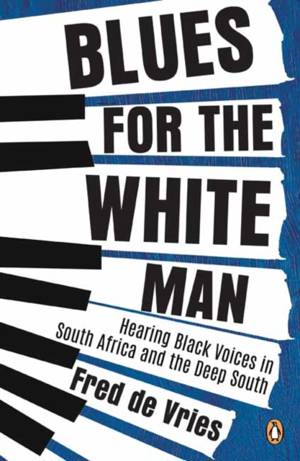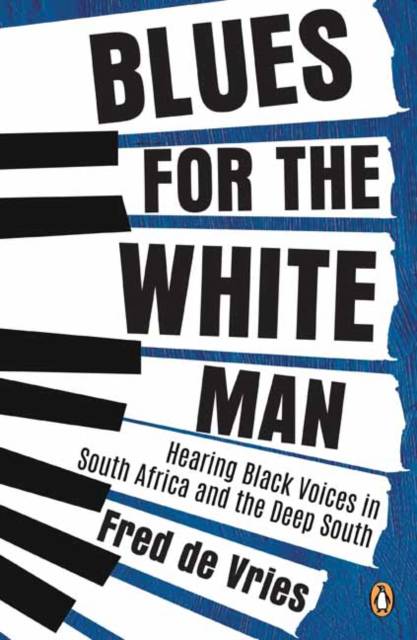
- Afhalen na 1 uur in een winkel met voorraad
- Gratis thuislevering in België vanaf € 30
- Ruim aanbod met 7 miljoen producten
- Afhalen na 1 uur in een winkel met voorraad
- Gratis thuislevering in België vanaf € 30
- Ruim aanbod met 7 miljoen producten
Zoeken
Blues for the White Man
Hearing Black Voices in South Africa and the Deep South
Fred De Vries
Paperback | Engels
€ 18,45
+ 36 punten
Omschrijving
It started with a question about the blues: what makes the music of the downtrodden black man so alluring to white middle-class ears? And that's where it gets interesting. Because blues is more than a musical genre: it's a cultural phenomenon that spans several centuries on both sides of the Atlantic, from slavery to Black Lives Matter, from Jan van Riebeeck to Fees Must Fall, from Robert Johnson to Abdullah Ibrahim.
In Blues for the White Man, Fred de Vries looks for answers in America's Deep South, drawing historical parallels with South Africa's experience of colonialism, slavery, racism, civil war, segregation, and protest. Traveling to Atlanta, Memphis, Nashville, New Orleans, and the Mississippi Delta, De Vries speaks to musicians, Black Lives Matter activists, and Trump supporters. He continues the conversation in South Africa, interviewing student protesters, white farmers, and political thought-leaders to develop an understanding of white supremacy and black anger, white fear, and black pain. A fascinating, insightful journey through time and space, Blues for the White Man is a celebration of multiculturalism and a plea for white people to do some 'second line dancing' for a change.
In Blues for the White Man, Fred de Vries looks for answers in America's Deep South, drawing historical parallels with South Africa's experience of colonialism, slavery, racism, civil war, segregation, and protest. Traveling to Atlanta, Memphis, Nashville, New Orleans, and the Mississippi Delta, De Vries speaks to musicians, Black Lives Matter activists, and Trump supporters. He continues the conversation in South Africa, interviewing student protesters, white farmers, and political thought-leaders to develop an understanding of white supremacy and black anger, white fear, and black pain. A fascinating, insightful journey through time and space, Blues for the White Man is a celebration of multiculturalism and a plea for white people to do some 'second line dancing' for a change.
Specificaties
Betrokkenen
- Auteur(s):
- Uitgeverij:
Inhoud
- Aantal bladzijden:
- 256
- Taal:
- Engels
Eigenschappen
- Productcode (EAN):
- 9781776096008
- Verschijningsdatum:
- 6/01/2022
- Uitvoering:
- Paperback
- Formaat:
- Trade paperback (VS)
- Afmetingen:
- 152 mm x 234 mm
- Gewicht:
- 368 g

Alleen bij Standaard Boekhandel
+ 36 punten op je klantenkaart van Standaard Boekhandel
Beoordelingen
We publiceren alleen reviews die voldoen aan de voorwaarden voor reviews. Bekijk onze voorwaarden voor reviews.











